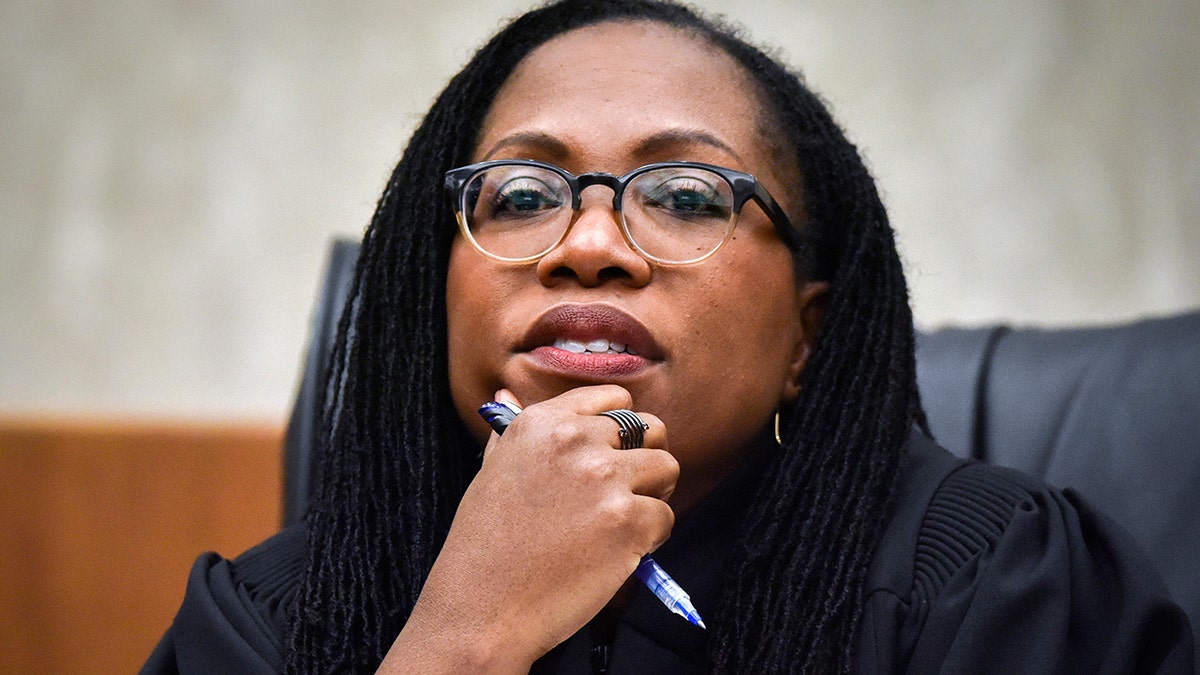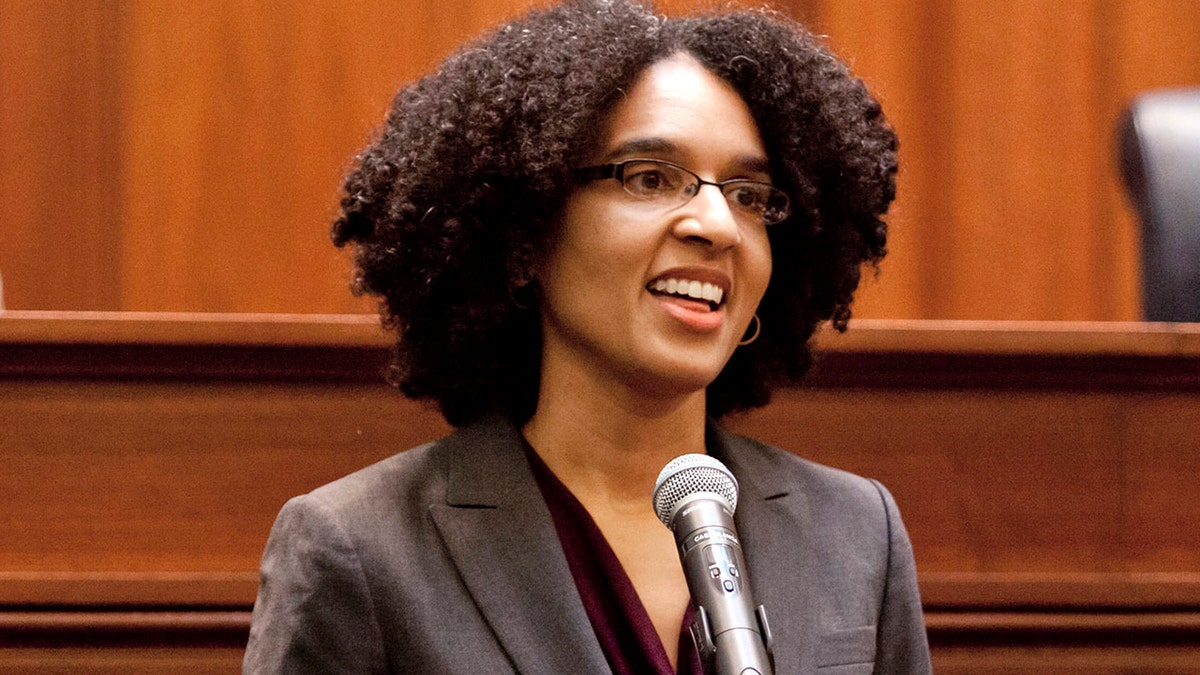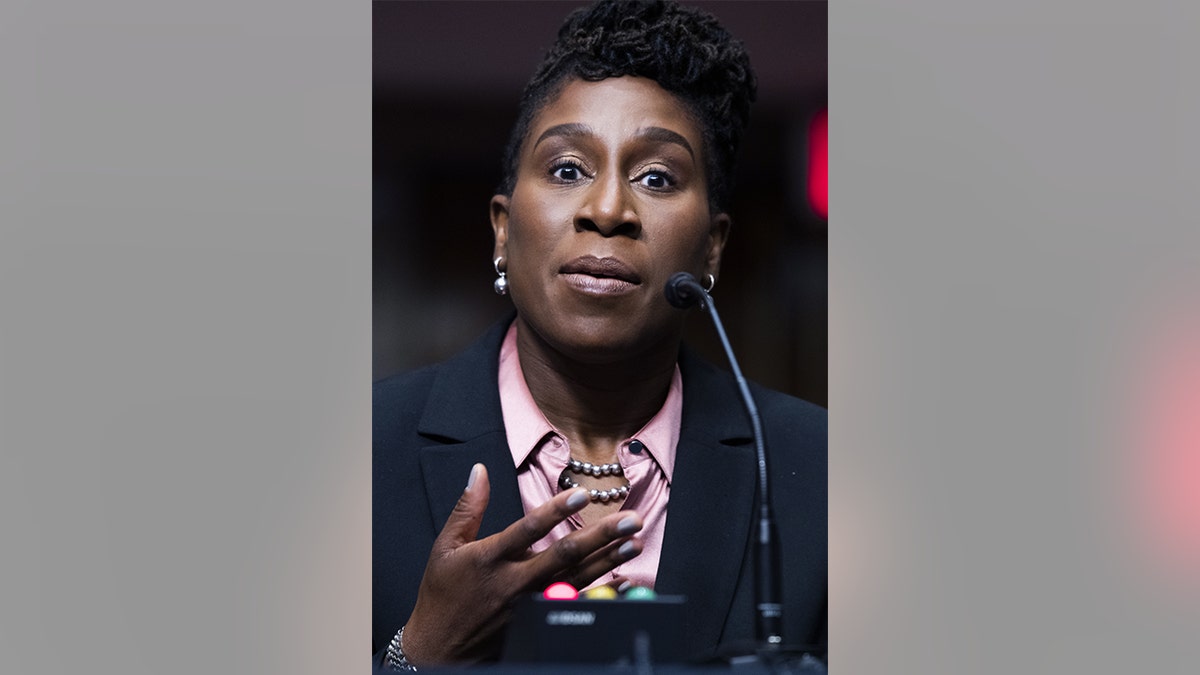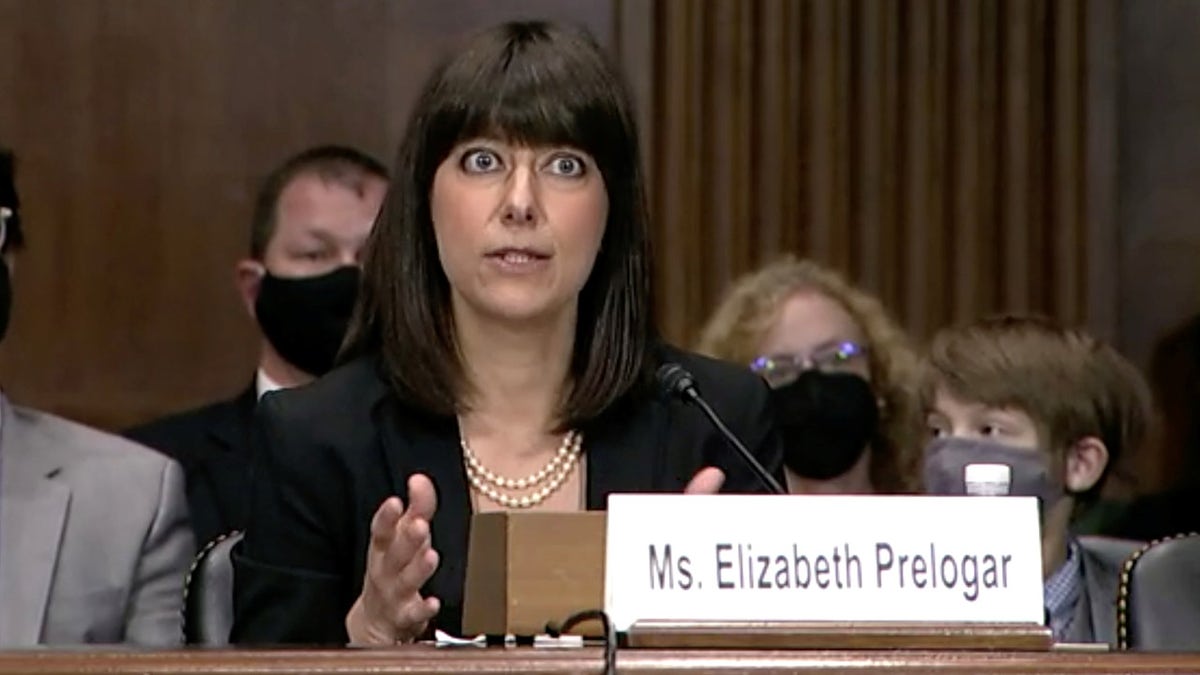Supreme Court Justice Stephen Breyer to retire, opening door for Biden appointment
Liberal justice will reportedly step down from the Supreme Court at the end of the current term, giving President Biden an opening to appoint a long-serving successor; the 'Outnumbered' panel reacts.
Supreme Court Justice Stephen Breyer is retiring at the end of the current term later this summer. Who could President Biden nominate to take his place?
This list, compiled from a number of sources, reveals some potential picks. White House administrations quickly begin compiling an informal list of possible court nominees to consider in the event of a sudden vacancy. But serious vetting only begins when such a vacancy occurs or is announced in advance by the retiring or deceased justice.
Judge Ketanji Brown Jackson, DC Circuit U.S. Court of Appeals, Washington
Born in 1970, Jackson assumed her federal appeals court seat in June 2021, in one of Biden's first judicial nominations. She was a federal district court judge in DC from 2013 to 2021, served on the U.S. Sentencing Commission and was a former Breyer law clerk.
SUPREME COURT JUSTICE STEPHEN BREYER TO RETIRE

Judge Ketanji Brown Jackson listens to arguments as local high school students observe a reenactment of a landmark Supreme court case at U.S. Court of Appeals in Washington. (Bill O'Leary/The Washington Post via Getty Images)
Jackson was a surprising finalist for the high court seat nomination that went to Merrick Garland in 2016, when she was still a trial judge.
In 2019, she presided over a dispute between former White House Counsel Don McGahn and the House Judiciary Committee, which sought to enforce a subpoena against him. Jackson rejected the Trump administration's claim of "absolute immunity," concluding "presidents are not kings."
Jackson's elevation to a high-profile federal appeals court seat put her near the top of possible high court candidates, given Biden's pledge to name a Black woman for any vacancy.
Her husband, Patrick Jackson, is the twin brother of former House Speaker Paul Ryan's brother-in-law William Jackson. The Wisconsin Republican supported her nomination to her current job, saying, "Our politics may differ, but my praise for Ketanji's intellect, for her character, for her integrity is unequivocal. She's an amazing person, and I favorably recommend her consideration."
Justice Leondra Kruger, California Supreme Court
Born in 1976, Kruger is a former clerk for Justice John Paul Stevens and a former Obama Justice Department official, arguing 12 cases before the Supreme Court.
SONIA SOTOMAYOR ON PUBLIC TRUST IN SUPREME COURT: ‘ALL OF US WORRY ABOUT THAT’
Given her sterling resume and age, Kruger would be a strong favorite for a Supreme Court seat, if Biden holds to his campaign pledge to nominate a Black woman.

FILE - In this Dec. 22, 2014 file photo Leondra Kruger addresses the Commission of Judicial Appointments during her confirmation hearing to the California Supreme Court in San Francisco. (AP Photo/S. Todd Rogers, Pool, File)
While she is considered something of a moderate on the state high court, and often a "swing" or deciding vote in close cases, state judges rarely receive serious consideration for the U.S. Supreme Court. The last was Justice Sandra Day O'Connor in 1981.
Kruger's parents are both pediatricians, her mother Jamaican, her father Jewish. She gave birth to a daughter in March 2016.
Judge Candace Jackson-Akiwumi, 7th Circuit U.S. Court of Appeals
Born in 1979 in Norfolk, Virginia, Jackson-Akiwumi is the daughter of two judges: U.S. District Judge Raymond Alvin Jackson and former Norfolk General District Court Judge Gwendolyn Jackson.

Candace Jackson-Akiwumi, U.S. circuit judge for the Seventh Circuit nominee for President Biden, speaks during a Senate Judiciary Committee confirmation hearing in Washington, April 28, 2021. (Tom Williams/CQ Roll Call/Bloomberg via Getty Images)
A former federal defender in Chicago, until recently she was a partner in a D.C. law firm. Nominated by Biden in March 2021, she was one of three Black women named to appeals courts seats in the administration's first months.
Judge Sri Srinivasan, DC Circuit U.S. Court of Appeals, Washington
Born 1967 in India and raised in Kansas, Srinivasan was named to the court in 2013 by a 97-0 Senate vote, months before colleague Patricia Millett joined him.
Srinivasan is now chief judge on that bench and was a finalist for the seat that Garland was nominated for in 2016. Srinivasan was the principal deputy solicitor general at the Justice Department and argued more than two dozen cases before the Supreme Court.
He would be the high court's first Asian American, and Obama called him "a trailblazer who personifies the best of America." He clerked for Republican-nominated federal judges Harvie Wilkinson and Justice Sandra Day O'Connor.
Known as low key, practical and non-ideological, he may not excite many progressives nor give conservatives much to dislike. But Justice Elena Kagan has praised him, saying Srinivasan at oral argument "cools it down" with his calm manner.
Elizabeth Prelogar, U.S. Solicitor General
Born 1980, Prelogar became the 40th solicitor general in October 2021, after serving for months in an acting role.

Elizabeth Prelogar testifies before her U.S. Senate Judiciary Committee confirmation hearing in this frame grab from video shot on Capitol Hill in Washington, Sept. 14, 2021. (U.S. Senate/Handout via Reuters)
The Idaho native clerked for Justices Kagan and Ruth Bader Ginsburg, and for then-Judge Merrick Garland on the D.C. Circuit appeals court. Besides Kagan, former solicitors general who later became Supreme Court justices include WIlliam Howard Taft, Robert Jackson, Stanley Reed and Thurgood Marshall.
Judge Paul Watford, 9th Circuit U.S. Court of Appeals, chambers in Pasadena, CA
Born 1967, Watford's age and background have made him a favorite among some liberal court watchers.
Named to the appeals court in 2012, Watford was a finalist for the nomination that went to Garland. He clerked for conservative-libertarian former federal Judge Alex Kozinski on the 9th Circuit, and later for Ginsburg, and he is a former federal prosecutor and law firm partner.
Supporters call the Orange County, California, native an ideological moderate, which may not sit well with progressives seeking a stronger liberal voice. But his rulings limiting police discretion in search-and-seizure cases have been applauded by left-leaning advocates.
CLICK HERE TO GET THE FOX NEWS APP
Judge Patricia Millett, DC Circuit U.S. Court of Appeals, Washington
Born 1963, Millett was named in 2013 to a bench considered a stepping stone to the high court – where four current justices once served.
Formerly a private Washington-based appellate attorney, Millett was called "one of the nation's finest" by President Obama. With more than a decade of experience in the U.S. Solicitor General's office, Millett argued 32 cases before the Supreme Court, second-most ever for a female lawyer.
Sources from both ideological stripes call her fair-minded, no-nonsense and non-ideological.
Judge Leslie Abrams Gardner, U.S. District Court for the Middle District of Georgia
Born 1974. A 2014 Obama appointee, she has ruled in several high-profile election disputes from Georgia, the latest over counting provisional ballots. Her lack of federal appellate experience may be seen as a disadvantage when considering Scotus nominees. Her sister is Stacey Abrams, who herself has been talked about as a Scotus pick, although she has no judicial experience and is running for governor. The sisters both went (separately) to Yale Law School.
Judge J. Michelle Childs, U.S. District Court for South Carolina; nominated for DC Circuit appeals court seat
Born 1966. Nominated in December 2021 to serve on the high-profile DC Circuit appeals court, replacing the retiring Judge David Tatel. She would be Biden’s second Black woman on the DC Circuit, along with Judge Ketanji Brown Jackson. We have been told Rep. Clyburn, D-S.C., strongly pushed the White House to name the South Carolina-based Childs to this seat. The DC Circuit is seen as something of a professional stepping stone to the Supreme Court. Recent justices who earlier served on that appellate bench include John Roberts, Clarence Thomas, Brett Kavanaugh, and the late Ruth Bader Ginsburg and Antonin Scalia. She has been on the district court since 2010. The Detroit native went the University of South Carolina's law school.












































